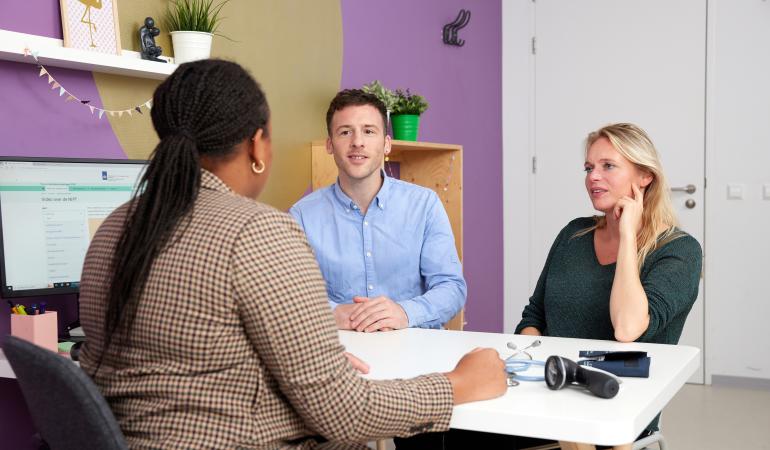
From 1 April 2023, the Non-Invasive Prenatal Test (NIPT) will be available to all pregnant women. They do not have to take part in a scientific study for this. This blood test checks if there are indications the unborn child has Down’s syndrome, Edwards’ syndrome and Patau’s syndrome. The NIPT will be part of the standard prenatal screening programme. Pregnant women can still choose if they want to take part or not. Before they make their decision, they will be able to discuss this at length with their midwife or gynaecologist.
From April, there will also be more locations (around 400) where pregnant women can give blood for this test. This will give them more choices and closer locations. The test will also be free from April.
Secondary findings
The NIPT can not only detect the three syndromes, but also other conditions. These are called ‘secondary findings'. Intellectual disabilities and physical abnormalities are examples of this. Pregnant women who take part in the NIPT can choose if they want to know about secondary findings. Pregnant women will only be told about secondary findings that could be dangerous to the child or that could make the pregnancy riskier. In very few cases, the findings may also show a condition in the mother. Follow-up testing needs to be done to find out if this is serious.
Change
From March, there will be temporary guidelines to make sure that the change to the new system goes well. RIVM decided this together with the other parties involved. Every pregnant woman can choose the NIPT, but if she can take part in the new NIPT depends on her due date. Pregnant women with a due date before 8 October 2023 can use the current NIPT. They have to take part in a scientific study. Pregnant women with a due date of 9 October 2023 or later can use the new test. They do not have to take part in the scientific study.
No blood collected in the last week of March
From 17:00 on Friday 24 March 2023 until midnight on Saturday 1 April 2023, no blood will be collected for the NIPT in the Netherlands. This is to give the blood collection sites and laboratories enough time to get ready for the new situation.
Go to the web page The NIPT, testing for Down’s, Edwards’ and Patau’s syndromes for more information about the NIPT.
On Monday 20 February, the Health Council of the Netherlands put out an advice about the NIPT. Minister of Health, Welfare and Sport Kuipers has not decided yet if he will follow this advice. This has no effect for the changes that will take place from 1 April.